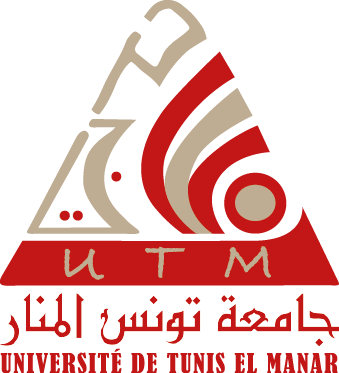
African Consortium (ALC):
Developing a paradigm for eliminating neglected diseases in Africa
About ALC
The ALC was created in response to the call for proposals to the Welcome Trust and The UK Foreign, Commonwealth and Development Office, joint program managed by the Science For Africa Foundation (SFA). This consortium supports collaborative research led by Africa-based scientists with the goal of advancing scientific research across Africa. It aims to groom the next generation of research and public health leaders who can drive locally relevant, high-quality health research that influences science, policy, and practice in Africa and globally. The program has a pan-African scope, including North, West and East African, Francophone and Anglophone, countries.
Hosted at the Institut Pasteur de Tunis (IPT), under the direction of Pr. Ikram Guizani, the ALC focuses on building leadership and excellence in science and public health to address challenges of controlling and eliminating leishmaniases in Africa. The IPT is the first institution in North Africa to be selected to lead a research consortium funded by the joint initiative of Welcome Trust and UKaid.
ALC is managed through a bilingual secretariat co-hosted at the IPT and at the University of Ibadan Research Foundation, under the guidance of ALC director and co-Director, Pr. Ayoade MJ Oduola.

ALC launch meeting and inception workshops May 2024
Rationale for ALC
Africa continues to struggle with numerous Neglected Tropical Diseases (NTDs), including leishmaniases. This group of vector-borne parasitic diseases affects over 30,000 people annually, imposing a heavy burden on millions across Sub-Saharan Africa, particularly the poorest populations in North, East, and West Africa. This situation exacerbates cycles of poverty and impedes socio-economic development. Over the past decades, visceral leishmaniasis (VL) outbreaks have resulted in the deaths of more than 100,000 Africans. Despite notable progress in the last 30 years, these diseases persist due to various challenges, including limited resources, inadequate infrastructure, and insufficient access to healthcare services.
Addressing leishmaniases, which range from cutaneous to visceral forms, requires a comprehensive and multifaceted approach. Effective control programs must include accurate patient diagnosis and treatment, robust vector surveillance, and the identification of high-risk populations and regions. Preventive measures should encompass active detection, mass drug administration, vector control, improved sanitation, and health education. Strengthening healthcare systems to ensure access to diagnosis, treatment, and follow-up care is also essential.
In addition to these strategies, community engagement in NTD control and elimination efforts is crucial. Training local healthcare workers and volunteers, utilizing innovative technologies for surveillance and data collection, and fostering collaboration between governments, international organizations, NGOs, research institutions, and local communities will enhance the effectiveness of interventions. Advocacy to raise awareness about the burden of leishmaniases and the need for sustained investment in control and elimination efforts is also vital.
ALC objectives
The African Leishmaniases Consortium (ALC) aims to create a comprehensive program based on a holistic approach with four main pillars, each addressing specific goals : Scientific quality, research leadership, Infrastructure, Management and Research Culture, Scientific Citizenship.
Our scientific objectives are:
- Advancing science and technology: We focus on applying recent developments in genomics and artificial intelligence to develop new tools and strategies for controlling and monitoring leishmaniases.
- Improving diagnosis and management: We aim to use these new tools to enhance the diagnosis of the disease, manage patient care more effectively, and improve vector control.
- Mapping and risk prediction: We work on creating detailed maps to track disease distribution and predict risk areas, which will be useful for program planning and implementation.
- Strategic research and policy development: We are establishing a Think Tank to conduct strategic research and use evidence to develop effective policies and strategies for controlling
They will be achieved through a continuum of research projects that are framed by 7 research priority project networks (RPPN) each focused on a dedicated research area that will support the research training of PhDs, Postdocs and Mid-career Researchers. Twenty-eight fellows will be competitively selected for support through different rounds of call for applications.
ALC will also establish a signature workshops program and a Think Tank that will translate research outputs into asset-based policy options and imperatives.
ALC Leaders
The African Leishmaniases Consortium (ALC) consists of eight partner institutions from eight countries in Africa and Spain. The consortium’s activities are led by:
- Pr. Ikram Guizani from the Institut Pasteur de Tunis, Tunisia, as Director
- Pr. Ayoade MJ. Oduola from the University of Ibadan Research Foundation, Nigeria, as Co-Director
- Dr. Meryem Lemrani from the Institut Pasteur du Maroc
- Dr. Elisa Sicuri from the Barcelona Institute for Global Health, Spain
- Pr. Nuria Casamitjana from the Barcelona Institute for Global Health, Spain
- Pr. Seydou Doumbia from the University Clinical Research Center - USTTB, Mali
- Pr. Maowia Mukhtar from the Bioscience Research Institute, Sudan
- Dr Endalamaw Gadisa from the Armauer Hansen Research Institute, Ethiopia
- Dr. Kamal Eddine Benallal from the Institut Pasteur d'Algérie
The ALC leverages the leadership, complementary strengths, and expertise of its partners to achieve its goals.

Funders
- Science For Africa Foundation (SFA)
- Welcome Trust,
- Commonwealth and Development Office (FCDO)

ALC actuality
ALC is excited to announce the upcoming launch of fellowship calls. These fellowships are designed for PhD students, postdoctoral fellows, and early/middle-career researchers who are committed to contributing to the fight against Leishmaniases. For more information and to apply, please visit our Fellowships calls page.




